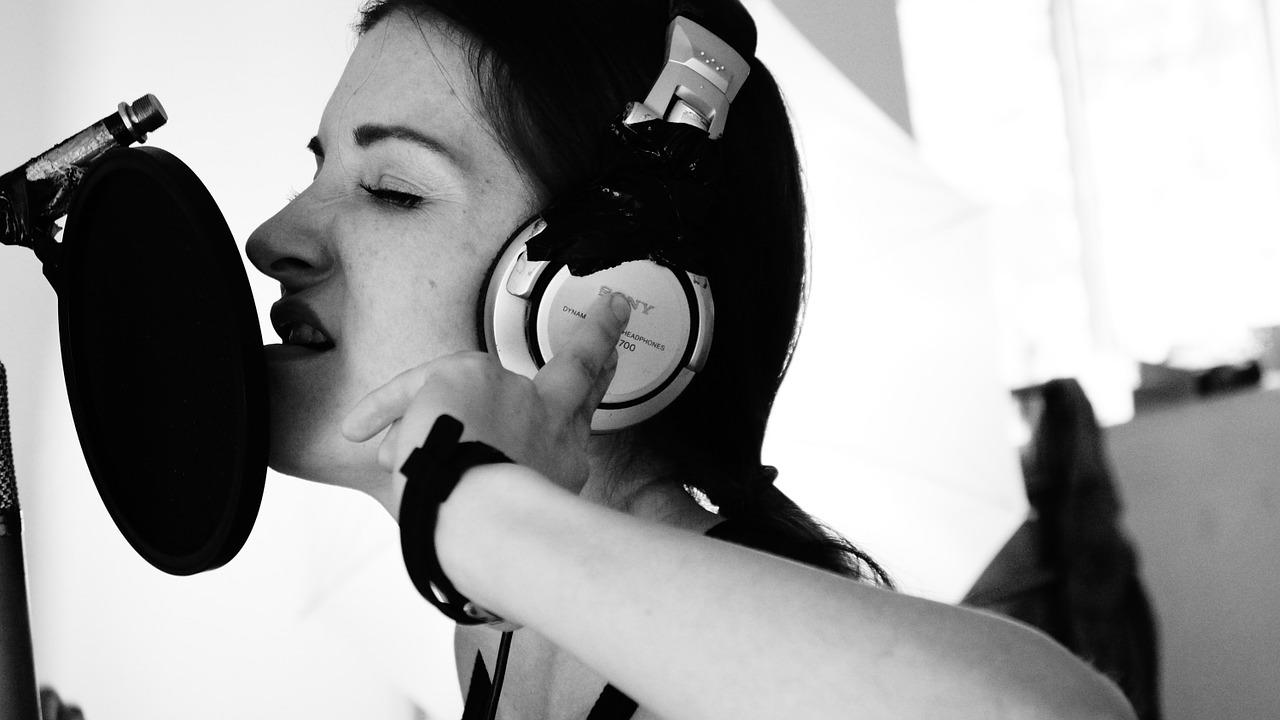With the help of a vocal coach, you can drastically improve your voice. Anyone can improve their singing if they have guidance from a professional and a can-do attitude!
Lots of people are getting help with their voices and enjoying the many benefits of working with a vocal coach.
Generally, one-on-one singing tutoring is an excellent way to improve your voice from the comfort of your own home, overcome stage fright, find your voice, and become a better singer and performer since your vocal coach will adapt every lesson to you and what you want to learn.
Finding a singing teacher can be tough and you'll need to carefully consider all your options before finally choosing the right singing teacher for you.
With the right vocal coach, you can achieve a lot, but it isn't just the job of your private singing tutor. Tutoring of any kind requires lots of hard work from both the tutor and the student, which means you have to practise between each session, do your homework, and prepare for your upcoming lessons.
Here's our guide to what students should be doing between their private singing lessons so they can get the most out of them.

Practising Pieces for Your Singing Lessons
It's quite common for aspiring singers to get an hour or two of private singing lessons each week. A professional singer, however, would probably tell you that this isn't anywhere enough.
This means that you'll need to do a lot of work outside of your weekly sessions to really improve. This work will mostly involve practising whatever your vocal coach has told you to before you next see them.

Every musician will get better with regular practice. Whether you're learning to sing or learning to play the piano or the guitar, you have to regularly practise.
It can also be useful for singers to learn a musical instrument that they can use as an accompaniment for their singing. The guitar and piano are often chosen by singers because they're versatile and can be played while maintaining a good posture for singing. Woodwind and brass instruments aren't suitable because you can't sing while you play them and certain stringed instruments, like the violin, can only be played in a position that isn't conducive to singing.
Learning to play a musical instrument can also help you to study music theory, which is essential for anyone who'll be taking formal exams in singing or looking to attend a university or conservatory.
While playing a musical instrument can massively help, it's not essential and you can always just focus on your singing and use backing tracks.
In your very first session with your private vocal coach, you'll want to find your voice, work out your timbre, and your vocal range. When it comes to singers, there are a few ways to classify voices, but the most common way is based on the vocal range and the kinds of roles that they would play in an opera, choir, etc.
The six main vocal registers are as follows:
- Soprano: High-pitch female voices
- Mezzo-soprano: Mid-range female voices
- Alto: Low-range female voices
- Tenor: High-pitch male voices
- Baritone: Mid-range male voices
- Bass: Low-range male voices
By knowing your vocal register, you can pick appropriate pieces to practise. Again, your private vocal coach should be able to do this for you when you're first starting out and are unfamiliar with registers and ranges.
Online, there are websites and tools you can use to find appropriate songs for your vocal register.
Once you have something to practise, you need to practise daily! A couple of vocal coaching sessions won't be enough to properly progress. You should be singing for at least 30 minutes each day, practising pieces, and doing vocal exercises.
Make sure you take care not to tire out your voice, either. If you find 30 minutes of singing practice is wearing out your voice, split your practice into two 15-minute sessions and make sure you take care of your voice, too.
Not only will this practice make you a better singer, but it'll also make your vocal coaching sessions more effective!
Practise Singing with Apps
Thanks to modern technology, you can practise singing, work on your vocal range, and improve your voice. There are plenty of free apps and premium apps that come highly recommended.

Apps are particularly useful for those who struggle to practise without guidance. They can provide feedback, recognise whether or not you're hitting the right notes, and provide you with more structure when you practise.
There are apps to improve your vocal range, improve your timbre, or even study for an upcoming singing exam.
Here are some of the singing apps that we recommend.
Smule
Smule calls itself a "recording studio in your pocket" and you can use it to record yourself singing, with others, or with famous artists. You can also add audio effects to your recordings.
The best thing about the app is that it's free but like many other free apps, there are in-app purchases and to fully unlock the functionality of Smule, you may have to pay some stuff!
The app is available on both iOS and Android.
Singing Vocal Warm Ups – Singer’s Friend
As the name suggests, this is an app you can use for vocal warm-ups. You can choose the scales and the range. Scales include your typical major and minor scales as well as hexatonic, five tone, mixed intervals, and arpeggios.
This app isn't free and it's only available on iOS, but it's not particularly expensive and if you're going to regularly use it, it will quickly pay for itself.
Voxtrain
Voxtrain is a free iOS app that includes a 6-week training program for singers for warm-ups, breathing control techniques, and improving your natural resonance.
Since you only need to use it for around 20 minutes a day, it mightn't provide you with all of your practice, but it could become a useful part of your daily singing routine.
Using YouTube as Part of Your Singing Training
You can find tutorials on almost anything on YouTube, especially singing. There are lots of excellent content creators on YouTube sharing advice, tips, and tutorials on how to improve your singing.
You can find everything from general advice for singers to the techniques used by opera singers and if you're ever short of ideas for singing drills, something to practise, or tips, you should head over to YouTube.

There are far too many singing channels on YouTube to name them all, but here are a few recommended creators to get you started:
- Felicia Ricci
- Eric Arceneaux
- Ken Tamplin Vocal Academy
- New York Vocal Coaching
Books to Help with Singing Practice
Books mightn't seem like the most obvious resource to use with singing lessons, but for any student preparing for a formal singing exam, there are lots of books on singing that make for essential reading.
With singing exams, you have to sing and also display a good understanding of music theory (at least at the higher levels) and books are a classic way to gain this kind of knowledge.
You might also want technical guides on things like singing technique, posture, and useful drills to include in your daily singing practice.
For music theory, books still remain one of the best resources out there, but there are so many out there it can be hard to choose one that would be appropriate for most singers.
Ideally, you want to find books written by experts in the field, but the best thing you can do is ask your private vocal coach for any recommendations. Not only will they know which books are good, but they'll know which ones will probably be best for you and what you need to learn.
While most people prefer to learn by doing, there's something to be said for studying the underlying theory. If you're the kind of student who likes to learn about something and study it before actually doing it, then books on singing will become one of your favourite resources.
There isn't a single ideal resource. Instead, you should consider finding the combination of resources that work for you and practise regularly.
As the cost of singing tuition can sometimes be quite high, you need to make sure it's worth it by putting in the effort both during and outside of your regular sessions.
During your sessions, you need to work hard, listen to your vocal coach, and be an active and positive participant. Outside of your private singing tutorials, you should be regularly practising, doing your homework, and making sure that you're prepared for the next session.
Private vocal coaching is one of the most effective ways to improve your voice, don't waste it by not practising!
Summarise with AI:















